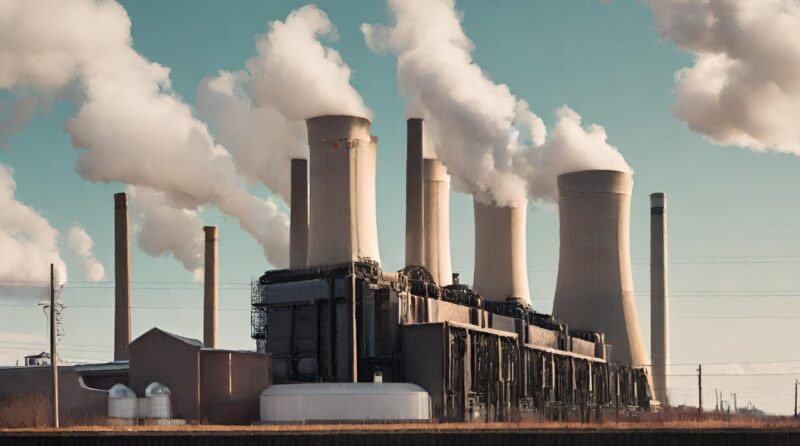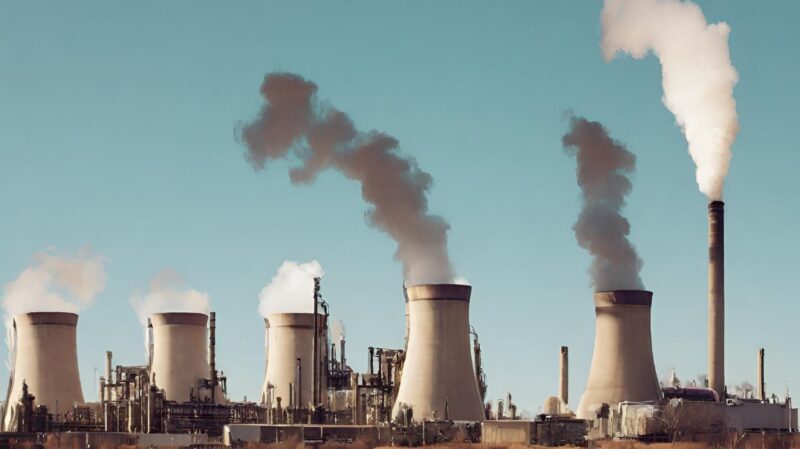Fossil fuels, including coal, oil, and natural gas, are formed from ancient plant and animal remains subjected to immense heat and pressure over millions of years. These resources are fundamental to modern society, being the primary energy source for transportation, electricity generation, heating, and various industrial processes.
Despite environmental concerns, their high energy content, ease of transport and storage, and established infrastructure make them integral to the global economy. As sustainable energy alternatives emerge, the role of non-renewable fossil fuels is shifting, but their influence on our lifestyle remains profound.
Balancing Act

Fossil fuels, despite their environmental drawbacks, offer several advantages that have made them a dominant energy source for decades. Their high energy density, abundance, affordability, and transportability have been instrumental in powering homes, industries, and transportation systems worldwide.
While fossil fuels have undeniable advantages, their environmental impact cannot be ignored. The burning of fossil fuels releases greenhouse gases, contributing to climate change and its associated environmental consequences.
Therefore, transitioning to cleaner energy sources is crucial for mitigating the environmental damage caused by fossil fuels.
High Energy Density
Fossil fuels are renowned for their high energy density, which refers to the large amount of energy they can produce relative to their volume or mass. This characteristic makes them an efficient and convenient choice for a wide range of applications.
For example, a single liter of gasoline is capable of generating approximately 35 megajoules of energy. This high energy output allows vehicles to travel significant distances on a relatively small amount of fuel, making gasoline a preferred choice for transportation.
Similarly, a kilogram of coal can produce about 30 megajoules of energy. Coal’s high energy density has historically made it a staple for electricity generation, providing a reliable and potent source of power for industries and residential areas alike.
The efficiency of fossil fuels is a key factor in their widespread use. Their ability to pack such a substantial energy punch in a compact form means that they can be easily transported, stored, and utilized whenever and wherever needed, contributing to their dominance in the global energy landscape.
Abundance

The abundance of fossil fuels is a significant factor in their prominence as a global energy source. These resources are found in large quantities across various regions of the world, contributing to their widespread accessibility and use.
Coal, in particular, is an excellent example of this abundance. It is the most plentiful fossil fuel on Earth, with reserves distributed across every inhabited continent.
Current estimates suggest that coal reserves are sufficient to last for several centuries, even at present consumption rates. This extensive availability has made coal a mainstay in energy production, especially in countries with substantial reserves.
The plentiful nature of fossil fuels like coal, oil, and natural gas has also influenced their market price. The relative ease of extraction and the large supply have kept costs lower compared to some renewable energy sources, which has further entrenched their use in the global energy economy.
In summary, the abundance and accessibility of fossil fuels have been key to their historical dominance and will likely continue to influence energy policies and decisions until sustainable alternatives can fully meet the demand.
Affordability

One of the most compelling advantages of fossil fuels is their affordability. Generally, they are less expensive than many renewable energy sources, which makes them highly accessible to a wide spectrum of consumers, from individuals to large industries.
This cost-effectiveness is due to the established extraction, refining, and distribution systems that have been optimized over decades. The affordability of fossil fuels has played a pivotal role in driving economic growth and development around the world.
Inexpensive energy costs mean lower operational expenses for businesses, which can lead to reduced prices for goods and services, higher profits, and the potential for increased wages. For consumers, affordable energy translates to lower utility bills and transportation costs, allowing for greater discretionary spending and contributing to overall economic vitality.
Moreover, the low cost of fossil fuels has enabled developing countries to industrialize rapidly, providing them with the means to improve infrastructure, increase manufacturing capabilities, and elevate the standard of living for their populations. While the long-term environmental costs of fossil fuel use are a significant concern, their immediate affordability continues to be a major factor in their ongoing use and a considerable challenge for the adoption of more sustainable energy alternatives.
Transportability of Fossil Fuels

Fossil fuels, such as coal, oil, and natural gas, possess a high degree of transportability, which is a key factor in their widespread use as an energy source. The ability to easily transport these fuels through pipelines, ships, and trucks enables efficient distribution across vast distances, overcoming geographical limitations.
This transportability has been crucial for powering industries and transportation systems that are located far from the sites of energy production. It ensures a steady and reliable supply of energy to areas that would otherwise face significant challenges in meeting their energy demands.
As a result, fossil fuels have become the backbone of the global energy infrastructure, facilitating economic growth and development in remote regions.
Additional Benefits

Fossil fuels like coal, oil, and natural gas, besides their high energy content and ease of transport and storage, offer several other significant advantages.
- Economic Stability: The fossil fuel industry is a major contributor to global economies, providing numerous jobs and supporting economic stability in many regions. This industry’s robustness ensures a steady supply of energy, underpinning many economic activities.
- Technology and Infrastructure Compatibility: Existing technology and infrastructure are largely designed around fossil fuels, making their integration into current systems seamless. This compatibility reduces the need for extensive and costly overhauls to accommodate alternative energy sources.
- Reliability: Fossil fuels provide a consistent and reliable energy source. Unlike some renewable sources like solar or wind, which depend on weather conditions, fossil fuels can deliver constant power, essential for critical infrastructure and industries.
- Flexibility in Use: These fuels can be used in various forms – as solids, liquids, or gases – offering flexibility in application. For instance, natural gas can power homes, industries, and even vehicles.
- Scalability: Fossil fuel-based power plants can be scaled up to meet large-scale energy demands, which is challenging for some renewable sources. This scalability makes them suitable for powering large industrial complexes and cities.
- Supporting Transition to Renewables: Fossil fuels are currently playing a transitional role as the world shifts towards renewable energy. They provide a base load energy supply while renewable infrastructure and technology are being developed and scaled up.
FAQ
How do fossil fuels impact air quality?
Burning fossil fuels releases pollutants like sulfur dioxide, nitrogen oxides, and particulate matter, which can degrade air quality. This leads to health issues like respiratory diseases and contributes to environmental problems like acid rain.
Can fossil fuel usage affect water resources?
Yes, fossil fuel extraction and processing can contaminate water resources. Oil spills, coal mining runoff, and fracking fluids can pollute rivers, lakes, and underground water, impacting ecosystems and human health.
Are there any technological advances reducing fossil fuels’ environmental impact?
Yes, technologies like carbon capture and storage (CCS) and more efficient combustion methods are being developed to reduce the environmental impact of fossil fuels. However, these technologies are not yet widely implemented.
How does the fluctuation in fossil fuel prices impact the global economy?
Price fluctuations in fossil fuels can significantly impact the global economy, affecting everything from the cost of goods and services to geopolitical stability. Countries dependent on oil exports can be particularly vulnerable to these fluctuations.
Is it possible to use fossil fuels sustainably?
Given their non-renewable nature and environmental impact, using fossil fuels sustainably is challenging. The focus is more on reducing dependency on them and transitioning to renewable energy sources.
Do all countries have equal access to fossil fuel resources?
No, fossil fuel resources are unevenly distributed globally, leading to disparities in access and energy independence. This can lead to economic and political imbalances between countries.
Final Words
Fossil fuels, crucial to modern society, have been the bedrock of energy for transportation, electricity, heating, and industry due to their high energy density, abundance, and transportability. These non-renewable resources, formed from ancient organic matter under immense pressure and heat, have driven economic growth and stability, thanks to their affordability and compatibility with existing infrastructure.
However, their environmental impact, particularly in contributing to climate change, is a significant concern. As we increasingly turn to sustainable energy sources, the role of fossil fuels is evolving.
Their ability to meet large-scale energy demands and support the transition towards renewable energy underscores their ongoing, yet changing, influence on our lifestyles and the global economy.
